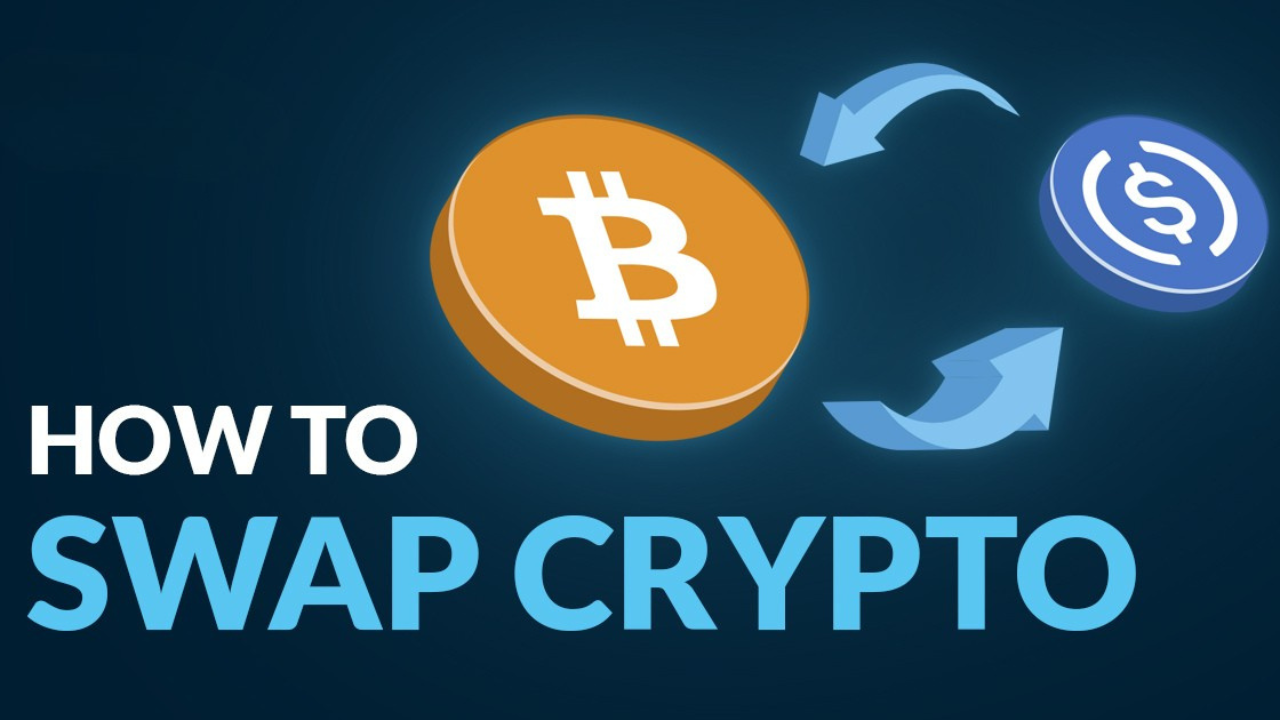How to Swap Cryptocurrency in NZThe Ultimate Method (2025)
Learn how to swap crypto in NZ using wallets, decentralised exchanges, and cross-chain tools like deBridge and SideShift.ai. Whether you want privacy or speed, this guide covers the safest and smartest ways to exchange crypto without relying on centralized platforms.

Swapping one cryptocurrency for another might sound simple, but depending on where your cryptocurrency is stored, what assets you're dealing with, and whether you want privacy or not the method you use will vary.
In this guide, we break down exactly how to swap crypto in NZ in 2025 whether you're using a wallet, a centralised exchange like MEXC, or a private tool like Houdini Swap. You'll learn the safest, most efficient ways to exchange digital assets while staying in control.
Author

Nic Turnbull
May 8, 2025
How to Swap Cryptocurrency in New Zealand
Know Where Your Crypto Is Stored
Before you can swap crypto or Bitcoin, you need to identify where your crypto is currently held. This step matters it determines what kind of tools you'll need.
If you're using a centralized exchange like MEXC or Binance you'll likely be able to swap within the platform directly. These services are beginner-friendly and come with easy interfaces, but they also require KYC and don't give you full control over your private keys.
If your Bitcoin or cryptocurrency is in a non-custodial wallet like MetaMask, Trust Wallet, or a hardware device, then you'll be handling the swap yourself often through a decentralised exchange (DEX) or a cross-chain bridge. Lets dive deeper.

Choose Your Swap Method: Centralized or Decentralized?
If you're just starting out, the easiest way to swap crypto is through a centralized exchange. In New Zealand, one of the more flexible platforms for this is MEXC.
It supports hundreds of tokens and has no mandatory KYC for small trades. This makes it a good middle ground giving access to many trading pairs while offering quicker setup than heavily regulated exchanges.
You'll need to deposit your crypto into MEXC, choose the trading pair (e.g. ETH to USDT), and complete the trade inside the platform. After that, it's best practice to withdraw back to your wallet to regain control of your funds. (not your keys not your crypto…)
If you prefer not to use centralised platforms, the decentralised route involves connecting your wallet to a DEX like Uniswap, Jupiter (for Solana), or a multi-chain aggregator. This keeps the swap on-chain and under your control, but it comes with extra steps like managing gas fees, setting slippage, and double-checking contract addresses.

How to Swap Crypto Across Chains
Swapping tokens within the same blockchain like ETH to USDC on Ethereum is simple. But if you're moving between different blockchains (e.g. Ethereum to BNB Chain, or Dogecoin to BTC), you'll need to use a cross-chain swap.
If you're working within EVM-compatible blockchains (Ethereum, Polygon, Arbitrum, etc.), deBridge is one of the best tools available in 2025. It's fast, reliable, and supports a growing number of chains all with solid documentation and a clean user interface. For swapping tokens between chains built on Ethereum tech, deBridge is the preferred method.
For broader swaps like Dogecoin to ETH, or BTC to AVAX platforms like SideShift.ai offer a powerful and fast alternative. SideShift is focused specifically on coin-to-coin swaps, especially useful for those outside of EVM chains. It doesn't require KYC and is ideal for converting assets between ecosystems quickly.
Both platforms are non-custodial, meaning you never give up control of your private keys. But with any cross-chain swap, proceed carefully. Triple-check addresses, chains, and token names before confirming and always test with a small amount first.
Mistakes in cross-chain swaps can result in permanent loss. So move slow, and don't trust unknown popups or shady aggregators.
Do You Want the Swap to Be Private or Public?
Most swaps whether through exchanges or DEXs are public and traceable. If your wallet is linked to an identity (through KYC), then your activity can often be tied back to you.
If privacy is important, a growing option is to use services like Houdini Swap. This platform allows you to swap assets between chains while masking sender and receiver details. It works by routing transactions through Monero (XMR) in the background.

Unlike traditional privacy coins, Houdini Swap gives users the ability to swap mainstream assets like ETH or BTC in a way that doesn't leave a clear on-chain trail. It's not anonymous in the sense of hiding everything, but it adds a strong privacy layer that can be valuable if you're concerned about surveillance or public wallet visibility.
Important! Private swaps require more care, though. You'll need to manage your own keys, and the platforms are often less beginner-friendly. But for those seeking maximum sovereignty, they're worth understanding.

Easy Crypto NZ - Buy Crypto on an easy to use platform
Easy Crypto is New Zealand's largest and most popular cryptocurrency retailer, making it 'safe, smart, and easy' for Kiwis to buy and sell over 160+ cryptos including Bitcoin in NZ.
Go To Easy Crypto NZRecommended Crypto Swap Tools for NZ Users

deBridge - Best for EVM Chain Swaps
deBridge offers seamless cross-chain swaps between Ethereum, Polygon, Arbitrum, and other EVM-compatible networks. With reliable infrastructure and excellent documentation, it's the preferred choice for most Ethereum-based token swaps.
Go to deBridge
SideShift.ai - Versatile Cross-Chain Swaps
SideShift.ai specializes in coin-to-coin swaps across diverse blockchains, including Bitcoin, Ethereum, and many altcoins. With no KYC requirements and fast processing times, it's ideal for converting between different crypto ecosystems.
Go to SideShift.aiNeed more crypto exchange advice? Contact us for personalized guidance →

Cryptocurrency Final Thoughts
At Cryptocurrency NZ, we lean toward privacy-first, decentralised methods over traditional KYC-heavy platforms. Centralized exchanges like Binance can be useful, but they require full identity verification, often locking users into rigid systems.
While MEXC currently doesn't require KYC for most users in New Zealand, that could change as regulations evolve so always stay informed.
The future of crypto swapping lies in decentralised, trustless systems. Tools like SideShift.ai and deBridge are already showing what's possible enabling fast, secure, and borderless swaps without giving up your identity or relying on centralized entities. DeFi is about sovereignty and control. Swapping cryptocurrency should reflect that giving Kiwis the freedom to move assets on their own terms.
Disclaimer: All content in this guide is intended for educational purposes only and should not be interpreted as financial advice. As an individual, you are entirely responsible for how you conduct your investments and manage your cryptocurrency interests. It is exclusively your own responsibility to perform due diligence and Cryptocurrency NZ recommends taking extreme care and caution with crypto and are not responsible for the outcomes, management, or oversight of your activities.